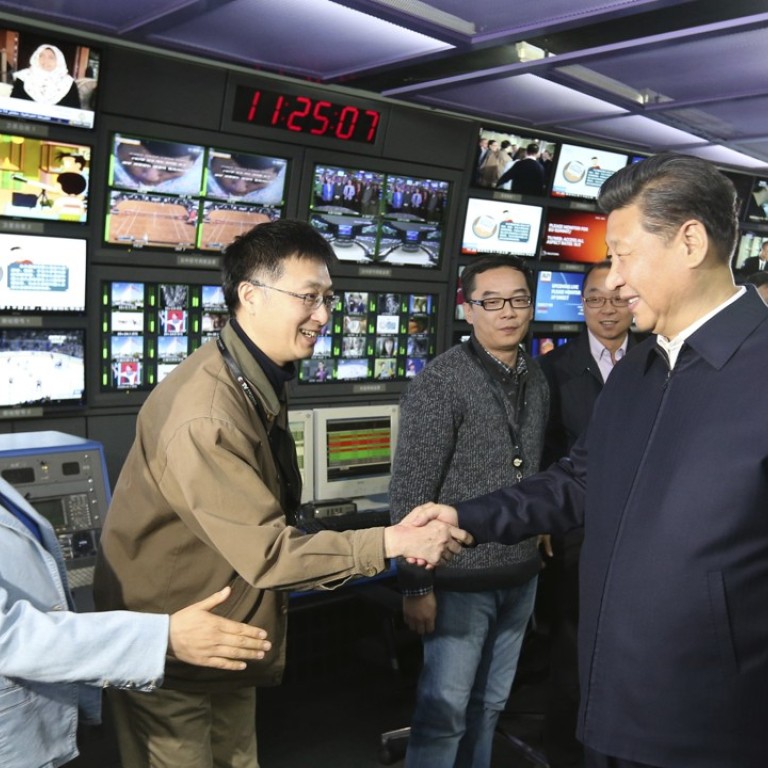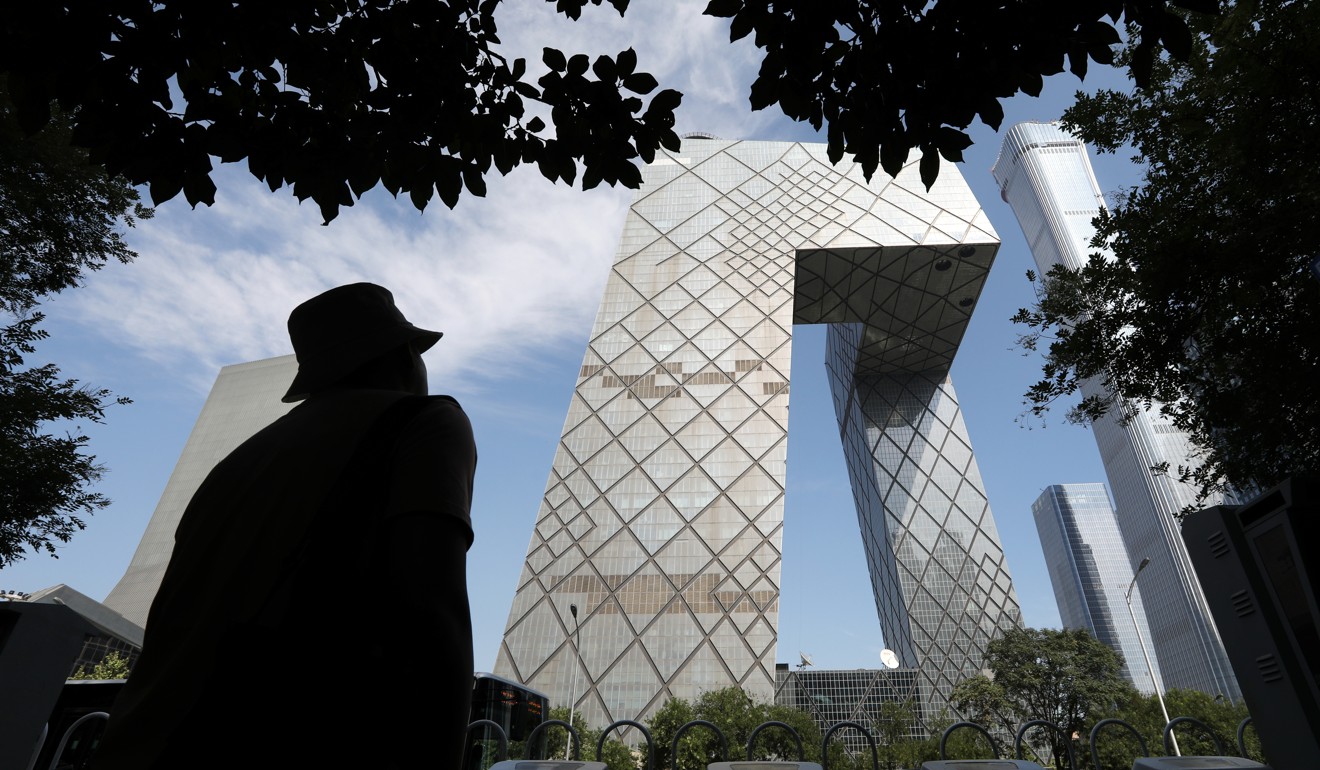
United States takes swipe at China’s media curbs with foreign agent orders on CGTN and Xinhua
Decades-old law requires Chinese outlets to disclose budgets and affiliation with Beijing
The United States has ordered two Chinese state-backed news organisations to register as foreign agents, a move one US official said went beyond trade to reflect Beijing’s lack of give on media access.
Both Xinhua News Agency and China Global Television Network (CGTN), the English-language arm of Chinese state broadcaster CCTV, have been told to clearly label their affiliation with Beijing and disclose budget and ownership structure information under the Foreign Agents Registration Act (FARA), The Wall Street Journal and Bloomberg reported this week.
China’s foreign ministry responded on Wednesday by calling on all countries to take on an “open and inclusive spirit” in promoting the role of the media, and to avoid politicising media activities.
“As far as I know, China and the US have communicated on this issue,” ministry spokesman Geng Shuang said. “But what I want to say is, we hope that the relevant party will facilitate rather than obstruct the regular work of media outlets.”
China’s state broadcaster CCTV rebrands international networks as CGTN in global push
He added that Beijing would continue to help foreign media conduct “unbiased reporting” in China.
A senior US official did not directly confirm the move, but said it reflected US grievances about China’s lack of reciprocity in areas beyond trade, including restricted access for American media outlets in China.
“We are now seeing that in Washington, the tolerance and patience is gone ... and you will see more of that in other aspects [besides trade],” the official said. “China needs to be held accountable.”
The US Department of Justice’s requests under the law – enacted in 1938 to counter German propaganda efforts – come amid rising concerns about foreign influence in the US, including alleged Russian interference in the 2016 presidential election. It also follows appeals by US senators and an advisory body to the US Congress to require Chinese state media to register under FARA, as four Russian state-funded outlets have done since last year.
US President Donald Trump on Tuesday accused China of meddling in the US midterm elections by taking aim at his political base in their escalating trade war, but Geng rejected the claim, saying China would not interfere in the domestic affairs of other countries.
US lawmakers seek to force Confucius Institutes to register as foreign agents
After the Chinese media outlets register as foreign agents, they will be have to report to the government twice a year and submit copies of reports within 48 hours of publication.
Representatives from Xinhua and CCTV said on Wednesday that they were unaware of the US government requests, and did not respond to follow-up queries by phone and fax.
Foreign media require foreign ministry approval to operate in China, and are subject to tight controls.
Overseas journalists working in the country say reporting conditions are becoming more hostile, with threats to revoke their visas as a form of coercion, according to the Foreign Correspondents’ Club of China. The websites for US outlets such as The New York Times and CNN are also inaccessible on the mainland.

In the United States, there are 20 registered “foreign agents” from China, including state-controlled media outlets China Daily, the overseas version of People’s Daily, and most recently the Xinmin Evening News, according to the Department of Justice.
While registration under FARA does not prevent the media outlets or other entities from influencing US policies, laws, or public opinion, it does require them to be transparent about the foreign entity for which they work.
But after Russia’s Kremlin-backed TV channel RT registered as a foreign agent last November, it was also stripped of its media access to the US Congress. The authority that controls the official press credentials for the Congress said it could not accredit media applicants that were employed by foreign governments or their representatives. Xinhua and CCTV both had congressional press access, according to the latest accreditation list.
Chinese media outlets have expanded their presence in the United States in recent years.
Xinhua, an official mouthpiece for the Communist Party, has leased a prominent LED sign in Times Square in New York, previously airing coverage of Beijing’s disputed claims to the South China Sea. Meanwhile, CGTN rebranded itself in 2016 to better cater to global audiences, with a broadcast centre based in Washington.
Additional reporting by Catherine Wong and Jun Mai

